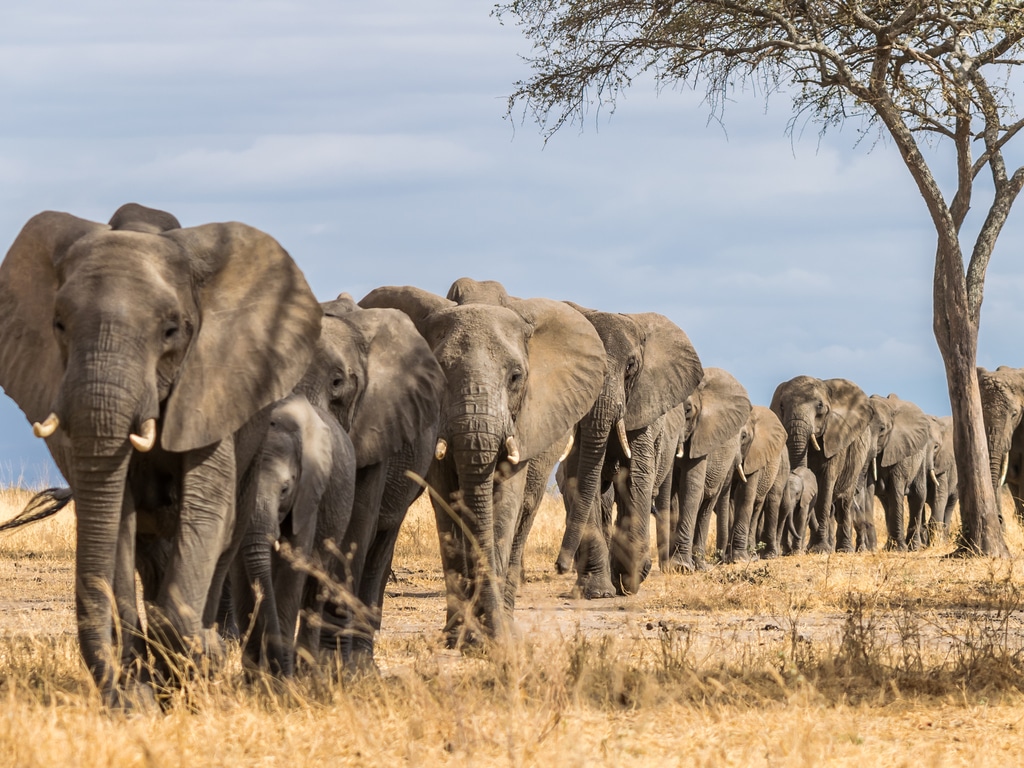Namibia has a population of 28,000 elephants spread over several protected areas such as Etosha National Park located 400 km north of the capital Windhoek and 125 km south of the border with Angola. Faced with the increase in the elephant population and the growing human-wildlife conflict in this southern African country, the government has opted to sell its pachyderms.
In this context, 22 elephants have just been exported to the United Arab Emirates (UAE). These mammals are part of the 170 elephants to be auctioned in 2021 by the Namibian authorities. Most were captured in the Kamanjab commercial breeding area in the Kunene region before being supplied to GH Odendaal, the buyer who had them exported to Abu Dhabi, the Emirati capital.
In Namibia, authorities are at a loss to find a balance between protecting valuable species such as elephants and rhinos while managing the danger they pose when they encroach on human habitation areas. For the past three years, the country has recorded at least 960 cases of crop destruction each year, 923 of which were caused by elephants, while four people have lost their lives due to their attacks.
According to the government of this southern African country, the funds generated by these operations, 5.9 million Namibian dollars (about 500,000 dollars), will be used to invest in wildlife conservation and strengthening regulations. “With the export of the 22 elephants, no international or national laws were violated by either the importing or exporting state,” said Romeo Muyunda, spokesman for the Ministry of Environment, Forestry and Tourism.
Missing regulations?
If for the government, the main objective of the auction was to reduce the elephant population in order to relieve the communities, the defenders of the fauna are offended by it. “Elephants have a fundamental need for ecologically and socially stimulating environments and the freedom to choose their food and mates. These needs cannot be met under captive conditions. There is no problem of elephant overpopulation in Namibia. In our view, it’s all about profit,” says Michele Pickover, director of the South Africa-based non-profit EMS Foundation.
Read also-NAMIBIA: Wildlife Angel deploys anti-poaching mission to Etosha Park
For its part, the Convention on International Trade in Endangered Species of Wild Fauna and Flora (CITES) was amended in 2019 to ban the export of elephants from Botswana, Zimbabwe, Namibia and South Africa to any country where the animals do not live or have not lived in the wild. This international treaty adopted in 1973 excludes sales to Chinese and American zoos, among others. According to National Geographic, about 20 of these captured elephants will soon be exported to undisclosed destinations.
Benoit-Ivan Wansi
